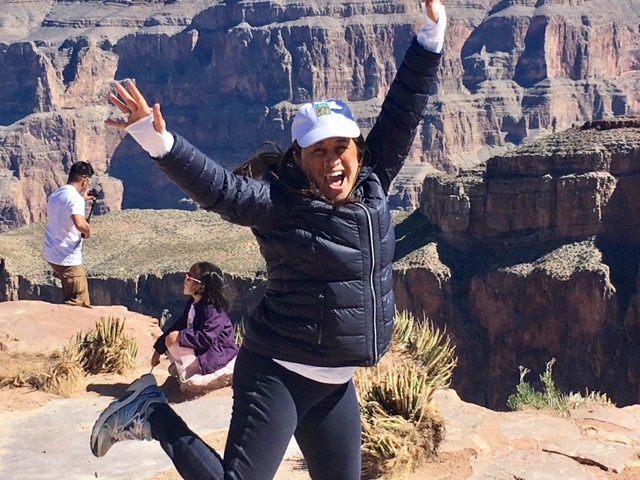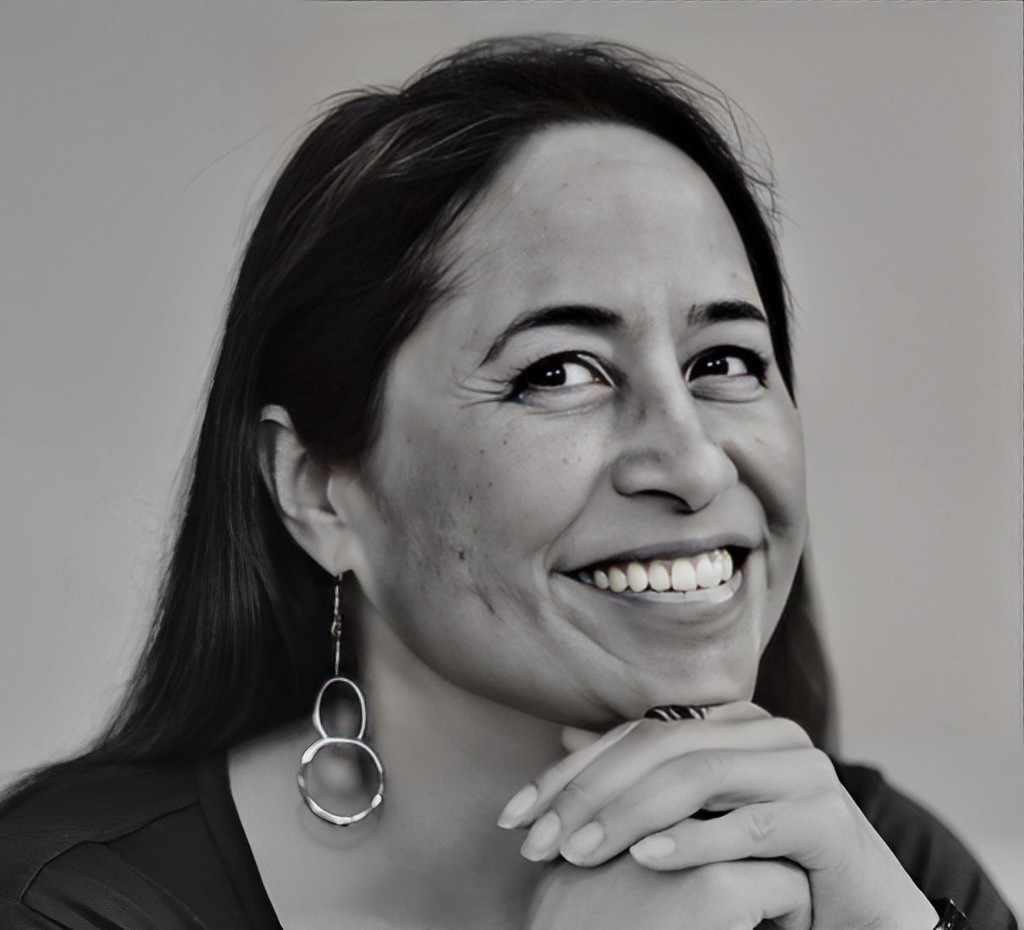An Interview With Drew Gerber
Stop comparing yourself to others. Be mindful that social media usually only displays the highlight reels of others’ lives. Comparison is the thief of joy.
We live in a time of great excess. We have access to fast fashion, fast food, and fast everything. But studies show that all of our “stuff” is not making us any happier. How can we simplify and focus on what’s important? How can we let go of all the clutter and excess and find true happiness? In this interview series, we are talking to coaches, mental health experts, and authors who share insights, stories, and personal anecdotes about “How Simplifying and Decluttering Your Life Can Make Us Happier.” As a part of this series, I had the distinct pleasure of interviewing Maria Leonard Olsen.
Maria Leonard Olsen is an attorney, author, journalist, TEDx speaker, podcaster and mentor to women in recovery from alcoholism and drug addiction. She is based in Washington, D.C. Learn more at www.MariaLeonardOlsen.com.
Thank you so much for doing this with us! Before we dive in, our readers would love to “get to know you” a bit better. Can you share your “backstory” with us? What was it that led you to your eventual career choice?
At age 50, I got divorced, sober and became an empty nester. I was living alone for the first time in my life. I felt rudderless. I had not practiced law, except on a pro bono basis, for fifteen years while I was an at-home mother. I began writing about my experience and found a second career as an author and journalist.
Can you share the most interesting story that happened to you since you started your career?
I have written four books and am working on my fifth book. The response to my vulnerability in my writing and public speaking about my books has been so gratifying. I believe my openness has helped others not feel so alone in their traumas. Almost every time that I give a book talk, someone approaches me in tears about how I have helped them. It makes everything worth it for me.
Are you working on any exciting new projects now? How do you think that will help people?
I have a weekly podcast, “Becoming Your Best Version,” in which I interview inspiring women. I believe their stories help people have courage to overcome their own adversities and expand their comfort zones.
I also am writing a book about the unintended consequences of consumer DNA tests. These tests have become immensely popular, but few are completely aware of the ramifications for themselves and their families of doing these tests. The book will be published by Brandeis University Press.
Can you share with our readers a bit about why you are an authority on the topic of “How Simplifying and Decluttering Your Life Can Make You Happier”?
After a major life re-set the year I turned 50, I gleaned much insight on happiness. I believe that dropping things that no longer serve you leads to increased serenity. I write and speak about this topic often. I enjoy sharing my lessons with others so that they, too, can move forward. Hopefully, I can expedite progress for others.
Ok, thank you for that. Let’s now jump to the main focus of our interview. We live in a time of excess. We have access to so much. But studies show that all of our “stuff” is not making us any happier. Can you articulate for our readers a few reasons why all of our possessions are not giving us happiness?
Possessions alone do not usually bring happiness. Think about that. Perhaps a certain amount of essentials help one be comfortable but, beyond that which we need, what else do possessions do for you? They may bring a hedonistic lift, but that is temporary. One’s favorite memories involve people and experiences, not material things. Focus on your relationships. One lesson of the pandemic is that we can get by on fewer things and that people and access to those we love is much more important than any thing we possess. Moreover, you cannot take anything with you when your life ends. But you can leave behind a legacy of good works and love.
On a broader societal level, how do you think this excessiveness may be harming our communities and society?
When people get caught up in materialism, they often lose sight of their important relationships. Strong relationships require time and nurturing. Excessive pursuits of material things leaves us less time to be with those important to us. And working hard to obtain things is an empty pursuit that merely adds to stress in our lives and decreases the quality of our existence.
The irony of struggling with happiness in modern times is glaring. In many places in the world today, we have more than ever before in history. Yet despite this, so many people are unhappy. Why is simplifying a solution? How would simplifying help people to access happiness?
Our over-busyness has caused us to lose sight of that which is most important in our lives. The pandemic forced us to slow down. For me, it crystallized what I want in life and those who are the most important in my life. As I age, I become for aware that I have lived more of my life than I have ahead of me. This realization has ignited a desire to travel, to create art and to be more present in the moment. If we all could slow down and take in the natural beauty around us, I think it would help increase our gratitude and sense of wellbeing.
Can you share some insights from your own experience? Where in your life have you transformed yourself from not having enough to finally experiencing enough? For example, many people feel they don’t have enough money. Yet, people define abundance differently, and often, those with the least money can feel the most abundant. Where in your health, wealth, or relationships have you transformed your life?
I volunteered for several months in Nepal, high in the Himalayas, shortly after my marriage ended. It became an exercise in cultivating gratitude. The people in this small, remote village were the happiest I have encountered, even though they had so little. They shared with one another. They focused on important things. They laughed, danced and sang. Even though they lacked running water and electricity, they made do, and found joy. I returned from that trip realizing how lucky I am simply to have been born in the U.S., where I had taken so much for granted. I no longer do that.
People, places, and things shape our lives. For example, your friends generate conversations that influence you. Where you live impacts what you eat and how you spend your time. The “things” in your life, like phones, technology, or books impact your recreation. Can you tell us a little about how people, places, and things in your own life impact your experience of “experiencing enough?”
I intentionally spend my time with people who share common interests and who are seekers. I want to keep learning for the rest of my life. I try something new every day. Studies show that, once you fulfill your basic needs, you do not require much more in the way of material items in order to be happy. So, I cultivate meaningful relationships and create interesting experiences to increase my happiness.
There also have been studies revealing that if you spend time with overeaters, you overeat. If you spend time with big drinkers, you will drink more. So those with whom we spend our time affect our lives in good and bad ways. So I try to spend time with people I respect and admire. This elevates my life experience.
What advice would you give to younger people about “experiencing enough?”
Surround yourself with people who bring out the best in you. Stay away from energy vampires and superficial people. Seek the company of people who support you and encourage you to be your best version. Read often. Visit other places in the world to expand your perspective. Listen to TED Talks. Do not settle for the gray safety that sameness promises. You never know which day will be your last. Will you regret not working harder or not having more things? I doubt it. But you might regret not spending more time with your parents or grandparents, or not taking opportunities or chances that come into your life.

This is the main question of our interview. Based on your experience and research, can you share your “five ways we can simplify and declutter our lives to make us happier?”
- For every one thing you bring into your home, get rid of two things. You can recycle them, sell them (online platforms make this easier), donate them, gift them or responsibly dispose of things that no longer are useful to you. In this way, our children or those we leave behind will not be saddled with the responsibility of disposing of our things when we leave this earth.
- Give experiences instead of things as gifts to others. Few people need more things. Everyone can use food, gift cards, or experiences to uplevel their lives.
- Look around your home. If you have not used something in a year, consider donating it to someone else who could use it. You will have less to care for, and a less cluttered workspace leads to increased concentration or, at least, fewer distractions.
- Live with intention. Learn how to say no to things that you do not genuinely want to do, but are inclined to do to please someone else. Use time to meditate, reflect and re-energize.
- Stop comparing yourself to others. Be mindful that social media usually only displays the highlight reels of others’ lives. Comparison is the thief of joy.
You are a person of great influence. If you could inspire a movement that would bring the most amount of good to the most amount of people, what would that be? You never know what your idea can trigger. 🙂
I believe minimalism is an important component of environmentalism. If we can bring more awareness to how we do not need so many things and help people focus on experiences and relationships instead, perhaps we can do less damage to our earth. Maybe people can think of our legacy to future generations and our mutual responsibility in leaving the world a better, safer, clean place for all.
How can our readers further follow your work online?
Check out my website, www.MariaLeonardOlsen.com, and follow me on LinkedIn at Maria Leonard Olsen and on Instagram, Facebook and twitter at @FiftyAfter50. Please hit the like button on my TEDx Talk, “Using Life’s Challenges as a Force for Good,” to help move it up in the algorithm. I believe it can help many people not feel so alone. Thank you!
This was very inspiring. Thank you so much for the time you spent on this. We wish you only continued success.
About The Interviewer: For 30 years, Drew Gerber has been inspiring those who want to change the world. Drew is the CEO of Wasabi Publicity, Inc., a full-service PR agency lauded by PR Week and Good Morning America. Wasabi Publicity, Inc. is a global marketing company that supports industry leaders, change agents, unconventional thinkers, companies and organizations that strive to make a difference. Whether it’s branding, traditional PR or social media marketing, every campaign is instilled with passion, creativity and brilliance to powerfully tell their clients’ story and amplify their intentions in the world.
Maria Leonard Olsen On How Simplifying & Decluttering Your Life Can Make You Happier was originally published in Authority Magazine on Medium, where people are continuing the conversation by highlighting and responding to this story.
